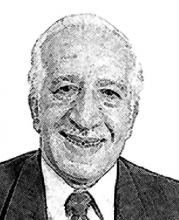You are here
What does it take to put an end to the mayhem in Syria?
Jan 30,2016 - Last updated at Jan 30,2016
Geneva III negotiations were launched this week in the hope of putting an end to the civil war in Syria, which, after five years, killed more than quarter of a million citizens and forced 8 million to become refugees, according to the United Nations report of August 15, 2015.
But it is doubtful that the United Nations envoy for Syria, Staffan de Mistura, can put an end to the bloodshed, since the two main combatants are guided by a fictional victory against the other.
President Bashar Assad’s forces are propped by the Russian intervention whose carpet bombing of enemies positions with Sukhoi 24 planes caused the death of more than 3,049 people since September 2015.
The 44 opposition groups, though fragmented, are enjoying the political support they receive as protégés of the United States, Turkey and other generous Gulf donors.
Their apathy to the mortality rate in Syria is only matched by the apathy of the Assad regime, indifferent to the fate of the victims of chemical barrel bombing.
It is this civil war that gave Moscow the golden opportunity to establish its military presence in Syria and to assume the role of a major regional player, which Washington came to accept.
The same applies to Tehran, which was courted by the United States to take a role in the Geneva III talks, and to Assad, who feels now stronger than ever, having the total political and military support of the Russian president, as well as of the Iranian president who volunteered thousands of his Revolutionary Guards to form the inner core of the protecting shields of the presidential palaces.
The same also applies to Hizbollah, which lost 1,009 fighters but benefitted from the civil war, having become a regional power rather than just a Lebanese party.
The foreign opposition combatants inside Syria are acquiring fighting skills they hope to use when they return to their countries.
Though they lost more than 37,010 volunteers, including 1,002 Jordanians and Palestinians, they will not leave as long as Assad and his Alawite minority are ruling the country.
Since the Geneva communiqué of 2012, 18 countries formed the International Syria Support Group that called for a “Syrian-led and Syrian-owned political transition”, and a full implementation of communiqué.
The UN Security Council Resolution 2254, issued in December 2015, adopted verbatim the ISSG recommendations for a six-month period to achieve “governance” in Syria.
It is sad that the main protagonists in the abominable mayhem in Syria are egoistically enjoying, for different motives, the benefits of their sponsors’ largesse, while 12,517 children were killed, according to the Oxford Research Group.













